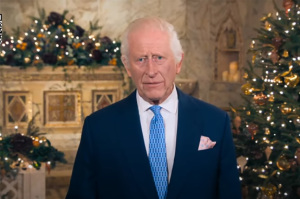NAE Takes Strong Pro-Immigration Reform Stance
WASHINGTON – The National Association of Evangelicals released its most comprehensive resolution on immigration in its history on Thursday during a press conference on Capitol Hill.
In revealing the resolution, four NAE leaders, all members of the Board of Directors, criticized the current system as broken and emphasized that an immigrant, just like any other person, is made in the image of God and thus deserves to be treated with respect.
"Our core faith convictions are such that all persons are created equal. This means that every individual possesses fundamental rights to live and be respected as a human person of intrinsic value and dignity regardless of race, class, nationality or legal status," said Berten Waggoner, national director of Vineyard USA, a denomination of over 1,500 churches worldwide.
People who have faith in Jesus Christ, he added, are also taught by the Scriptures to seek justice and defend those who are marginalized.
"Therefore, we oppose and condemn all unjust and harsh laws, policies, and measures directed against immigrants and call for new laws that are characterized by mercy, love, compassion and justice," the evangelical leader said.
Resolution Immigration 2009 is NAE's third such policy declaration on immigrants with the first having been released in 1995 and the second in 2006. Unlike past declarations, however, the 2009 resolution is far more detailed on explaining how the leaders came to their position on immigration and more specific on what changes the NAE wants to see Congress make.
Galen Carey, director of governmental affairs at the NAE, told The Christian Post that the 2009 resolution differed from the past statements primarily because of the extensive gathering of feedback and dialogue that went into the resolution.
While the 1995 and 2006 resolutions were merely one page statements calling for compassionate immigration reform, the 2009 resolution is about four times longer and included seven specific changes the evangelical body wants to see in the treatment of immigrants.
The NAE said it released the statement in response to the recent strident national debate on the issue.
Notably, while the leaders called for more humane immigration laws, they also emphasized their support for developing structures to safeguard the national borders and setting up functional legal mechanisms for the annual entry of immigrant workers.
Resolution Immigration 2009 contends that the current visa quota is not enough to meet the needs of U.S. jobs and industries that rely on immigrant workers. As a result, millions of immigrants come into the United States without proper documentation but their existence is largely ignored because of the economic benefit.
But without legal status and with people ignoring their existence, undocumented immigrants can be mistreated and underpaid without anyone reporting the abuse, the resolution noted.
Another problem fueled by the low visa quota and the lack of ways for undocumented immigrants to become legal is the development of an underground industry for false documentation and human smuggling.
"I understand and am fully aware that the border [issue] can sometimes be a very difficult thing," said Ronald Burgio, president of Elim Fellowship, an association of 900 pastors, minister and missionaries, and 100 affiliated churches. "I struggle with that. But I also realize that along with making the proper policies, there needs to be grace given.
"Most of the people that come across our borders came to work hard and are decent citizens," he said.
The resolution, passed unanimously, calls for the U.S. government to establish a fair process for undocumented immigrants already in the country to earn legal status and fair labor and civil laws for everyone.
"Our current immigration system is broken," said NAE president Leith Anderson, who leads the network of tens of millions of believers.
"Those who want to play by the rules – both employers and employees – often have no realistic options," he contends.
Fellow NAE board member Berten Waggoner, meanwhile, says he believes that besides benefiting immigrants, immigration reform is also good for the United States.
"We want our nation to be known as a beacon of hope and freedom for the hurting, the poor and the oppressed for all nations," he said. "This requires us to change our immigration laws and practice to reflect the faith commitments that we evangelicals hold dear."
Following the press conference, Anderson and Samuel Rodriguez, president of the National Hispanic Christian Leadership Conference, testified at a hearing held by the Senate Judiciary Subcommittee on Immigration, Border Security, and Citizenship in favor of comprehensive immigration reform.
There are an estimated 12 million illegal immigrants in the United States.





























